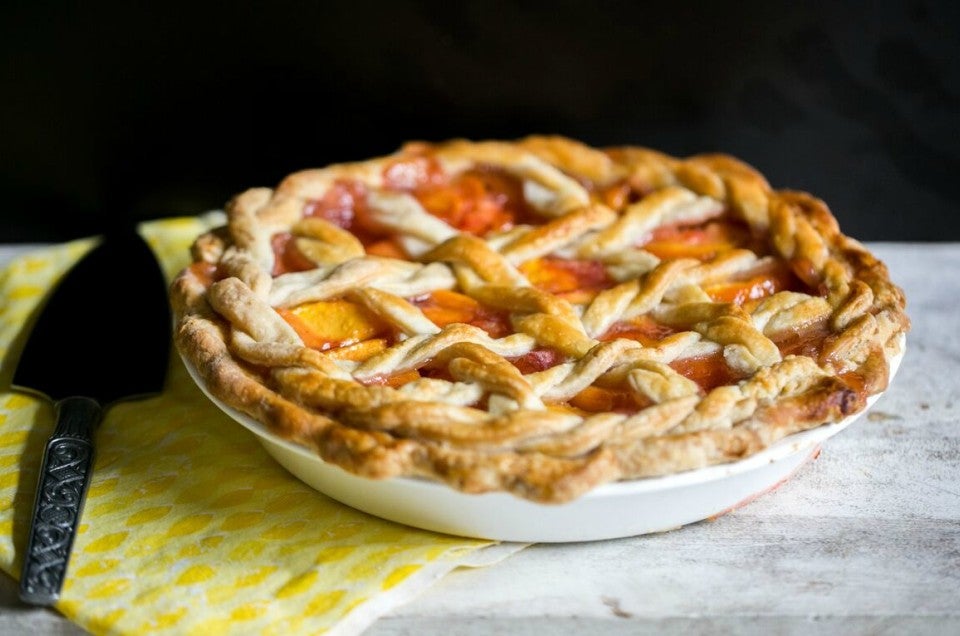


Great pie dough is easy for some and a quest for others. Flour, salt, butter, water — how can it be so challenging? Sometimes, recipes call for one extra ingredient: a splash of vinegar in the cold water that brings the pie dough together.
What does that vinegar do? The most common answer — that it affects gluten development — isn't actually that useful. If you had a mass spectrometer at home, you could measure the teensy difference vinegar makes in the tensile strength of gluten strands in the dough, which in theory makes it a bit more tender.
But there are two much more important perks to using vinegar: it provides a little insurance against overworking the dough. And, that splash of vinegar will keep your dough from oxidizing and turning gray.

To watch the oxidation process play out, I made two batches of our All-Butter Pie Crust and mixed 1 tablespoon of vinegar into the ice water of the second batch.

Here's the same recipe after three days. The water-only version has become noticeably grayer. It was also a bit more slack to work with when rolled out.

What happens if your dough is gray and oxidized, and you bake it anyway? Good news. It'll be fine. While the oxidized dough was a little floppier to work with and didn't hold the pattern of the pie top cutters, the look and flavor of the baked dough were pretty much the same.
In the end, if you prepped your dough without vinegar, forgot about it, and worry you'll have to start over, fear not. Use your gray dough and give it a little egg wash on top before baking.
The biggest determining factor in the quality of your pie crust is the technique used to make it. Vinegar, buttermilk, lemon juice, and vodka all change the interaction of the liquid and gluten in the dough. But the difference between a dough with acid in it and one without (when made with the same technique) is infinitesimal. In other words, no ingredient can cure poor execution.
So remember the essential rules of pie baking:
When it comes to pie dough, practice makes perfect. The most essential pastry ingredient is confidence. But if you're a busy baker and aren't sure when you'll be making the leap from dough to oven, a little splash of vinegar (or lemon juice) in your recipe is a good idea.
If you're a visual learner, check out the video tutorials in our Pie Baking Guide.
Our thanks to Anne Mientka for the photos in this post.

